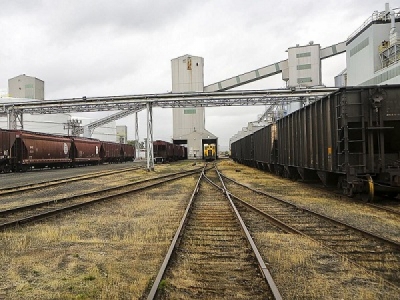
Posted on September 10, 2018
The proponent of the giant Longview coal terminal has sued the state Department of Ecology and its director, contending they were biased and “intentionally” misapplied the federal Clean Water Act when they denied a permit for the $640 million project.
“(Ecology) director Maia Bellon and her team ignored their responsibilities under the Clean Water Act. Had the laws been applied as the Clean Water Act requires, Millennium would already have our water quality certification,” according to a written statement from Wendy Hutchinson, senior vice president for Millennium Bulk Terminals.
The suit adds one more knot to the legal tangle the project is embroiled in as Millennium continues its now nearly seven-year effort to get the terminal permitted.
The suit, filed in Cowlitz County Superior Court, contends that the agency “cherry-picked non-water quality effects … as a pretext to veto water quality certification, and the state Environmental Policy Act may not be used to block the construction or project merely because they are unpopular,” according to the company’s press release.
Ecology used “non-water quality” factors that are prohibited from consideration under the clean water law, the suit asserts.
“Ecology used consultations from the Environmental Impact Statement about air emissions from trains, other interstate rail-induced effects and effects from increased vessel traffic on the Columbia River to summarily deny the certification,” the suit adds.
Ecology spokesman David Bennett countered: “We want to affirm that Ecology acted within its authority under (federal and state clean water laws) in denying the water quality certification for this project. … There can be no question that this plan would have damaged the water quality of the Columbia River and the health of surrounding communities.”
He noted that Millennium failed to show how it would avoid or compensate for the loss of 24 acres of wetlands, to manage and treat contaminated stormwater at the site during construction and operation, to demonstrate it had sufficient water to control coal dust, and to explain how it would contain existing aluminum smelter contamination at the site during construction and operation of the terminal.
When it denied a water quality certification for the project last September, Ecology also noted that the project trains would delay access to tribal fishing sites upstream of Bonneville Dam and would increase the risk of cancer in the Highlands neighborhood of Longview by 10 percent over background county levels. (That translates to about one extra case over 70 years.)
The project would fill 24 acres of wetlands, require 41.5 acres of dredging of the Columbia River bottom and drive 537 pilings into the river for a new trestle and docks, according to a state environmental impact statement. The terminal would add nearly 1,700 vessel transits to the Columbia River, a quarter of all freight traffic on the waterway.
Some of Ecology’s conclusions seem inconsistent with other actions: It approved deepening of the Columbia River shipping lanes more than a decade ago, and that involves thousands of acres of dredging, not just 41.5 acres. Also, it discounted some mitigating circumstances: For example, it found that train traffic could add to congestion in Longview despite plans to build a grade separation overpass at the foot of the Lewis and Clark Bridge. Ecology said the overpass project still is in the planning stages and couldn’t be counted on to ease rail congestion, even though the Legislature has appropriated $85 million for the project.
In an interview at the time, Bellon called the project “unprecedented” in scope, noting it would move 48.5 million tons of coal annually — making it one of the largest coal terminals in North America. Coal would be piled eight stories high and 50 football fields wide, according to Ecology. The project alone would boost U.S. coal exports by 40 percent.
Source: TDN.com





